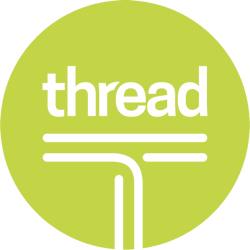Let's face it: managing your people is a whole different job than it was five years ago, and your HR technology needs to keep up. Whether you're evaluating Human Capital Management (HCM) software for the first time or you're fed up with juggling disconnected systems, choosing the right platform isn't just a checkbox. It's a strategic move that impacts your entire business.
So, how do you find a solution that's more than just a patchwork of tools? Here's what to look for in a modern HCM platform that can actually move the needle.

1. It's Not Just About Payroll Anymore
Yes, payroll is essential. But a great HCM platform should also:
- Support your hiring team with intuitive talent acquisition tools
- Seamlessly onboard new hires and speed up ramp time
- Streamline performance reviews and goal-tracking
- Offer learning, development, and internal growth tools
- Provide real-time reporting for leadership and compliance
Think of it like a quilt; if payroll is one square, you need the rest stitched in, too. A single platform for all your people needs avoids data silos and wasted time jumping between systems.
2. Real Support, Not Just a Help Article
The best software in the world won't help if you can't get answers when it matters. Look for an HCM provider that offers:
- Dedicated customer success and HR experts you can actually talk to
- Onboarding help that gets you live faster (without the stress)
- Regular check-ins, not just sales calls
- On-demand resources like how-tos, webinars, and compliance updates
You're not just investing in a product. You're investing in a partner. Make sure your provider treats it that way.
3. Transparent, Flexible Pricing
No one likes surprise fees. When evaluating a solution, make sure you're asking:
- What's included in the base cost vs. what's extra?
- Are there charges for things like support tickets, ACA filing, or training?
- Can you scale up (or down) as your team changes?
- How easy is it to add features or modules over time?
Pricing models that grow with you (without nickel-and-diming you) are key to long-term success.
4. Built for a Mobile, Cloud-Based, Always-On World
Gone are the days of on-premise software and clunky logins. In 2025, your HCM solution should:
- Be 100% cloud-based (no installs, no outdated versions)
- Include mobile access for HR teams and employees alike
- Offer top-tier security certifications (SOC 2, GDPR, CCPA, etc.)
- Easily integrate with tools you already use (payroll, time tracking, benefits, accounting)
Security and accessibility aren't nice-to-haves; they're must-haves.
5. Seamless Implementation and Ongoing Optimization
Switching HCM systems is a big deal. Your vendor should:
- Tailor onboarding to your team's actual workflows and goals
- Provide a sandbox or test environment for hands-on training
- Stay in touch with optimization advice long after you go live
Your people strategy evolves, and your software should keep up.
6. Technology That Looks Forward, Not Back
The best HCM tools aren't just digitizing paperwork; they're using smart technology to improve how you work. That includes:
- AI-powered tools to help predict turnover or engagement gaps
- Automation for things like resume screening and onboarding tasks
- Personalized dashboards and learning paths for employees
Ask vendors how they're using AI or predictive analytics because the right tools can help you focus less on busy work and more on strategy.
7. Employee Experience, Front and Center
A great HCM solution doesn't just make life easier for HR; it enhances the lives of your entire team. Prioritize platforms that:
- Give employees visibility into their pay, benefits, and goals
- Offer recognition, surveys, and feedback tools
- Support wellbeing, DEI, and career growth in meaningful ways
In a tight labor market, these features aren't fluff; they're retention tools.
8. Compliance Without the Headaches
Whether you're hiring across states or industries, compliance is a moving target. A strong HCM system should:
- Help you stay compliant with state, federal, and industry-specific rules
- Offer audit trails and real-time alerts when things go off-track
- Provide built-in reporting and filing tools (think W-2s, ACA, new hire reporting)
Make sure your system's not just built to help you track compliance but help you maintain it, too.
Final Stitch: Find a Solution That Works With You
Choosing an HCM solution isn't just about features and checklists. It's about finding a platform and a partner that understands your goals, adapts to your needs, and actually helps your people thrive.
At Thread, we offer more than just software. We bring certified HR experts, real customer support, and an implementation process that fits your business, not the other way around.
Need help evaluating your current HCM system?
Let's talk. Our team can guide you through your options and show you how Thread stacks up.
Schedule a Review














